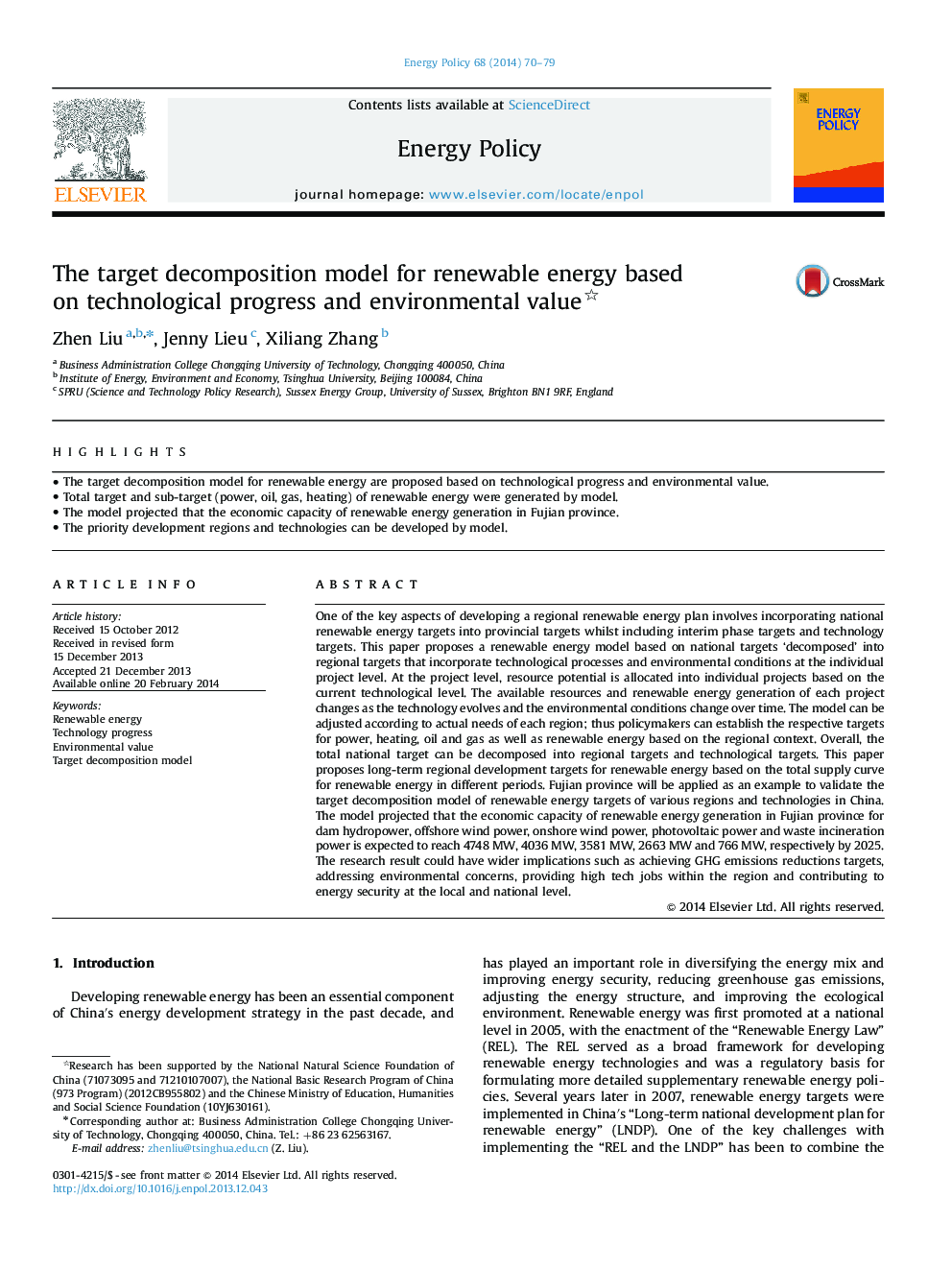| کد مقاله | کد نشریه | سال انتشار | مقاله انگلیسی | نسخه تمام متن |
|---|---|---|---|---|
| 7402120 | 1481290 | 2014 | 10 صفحه PDF | دانلود رایگان |
عنوان انگلیسی مقاله ISI
The target decomposition model for renewable energy based on technological progress and environmental value
ترجمه فارسی عنوان
مدل تجزیه هدف برای انرژی تجدید پذیر بر اساس پیشرفت تکنولوژیکی و ارزش زیست محیطی
دانلود مقاله + سفارش ترجمه
دانلود مقاله ISI انگلیسی
رایگان برای ایرانیان
کلمات کلیدی
انرژی تجدید پذیر، پیشرفت فناوری، ارزش محیطی، مدل تجزیه هدف،
موضوعات مرتبط
مهندسی و علوم پایه
مهندسی انرژی
مهندسی انرژی و فناوری های برق
چکیده انگلیسی
One of the key aspects of developing a regional renewable energy plan involves incorporating national renewable energy targets into provincial targets whilst including interim phase targets and technology targets. This paper proposes a renewable energy model based on national targets 'decomposed' into regional targets that incorporate technological processes and environmental conditions at the individual project level. At the project level, resource potential is allocated into individual projects based on the current technological level. The available resources and renewable energy generation of each project changes as the technology evolves and the environmental conditions change over time. The model can be adjusted according to actual needs of each region; thus policymakers can establish the respective targets for power, heating, oil and gas as well as renewable energy based on the regional context. Overall, the total national target can be decomposed into regional targets and technological targets. This paper proposes long-term regional development targets for renewable energy based on the total supply curve for renewable energy in different periods. Fujian province will be applied as an example to validate the target decomposition model of renewable energy targets of various regions and technologies in China. The model projected that the economic capacity of renewable energy generation in Fujian province for dam hydropower, offshore wind power, onshore wind power, photovoltaic power and waste incineration power is expected to reach 4748Â MW, 4036Â MW, 3581Â MW, 2663Â MW and 766Â MW, respectively by 2025. The research result could have wider implications such as achieving GHG emissions reductions targets, addressing environmental concerns, providing high tech jobs within the region and contributing to energy security at the local and national level.
ناشر
Database: Elsevier - ScienceDirect (ساینس دایرکت)
Journal: Energy Policy - Volume 68, May 2014, Pages 70-79
Journal: Energy Policy - Volume 68, May 2014, Pages 70-79
نویسندگان
Zhen Liu, Jenny Lieu, Xiliang Zhang,
